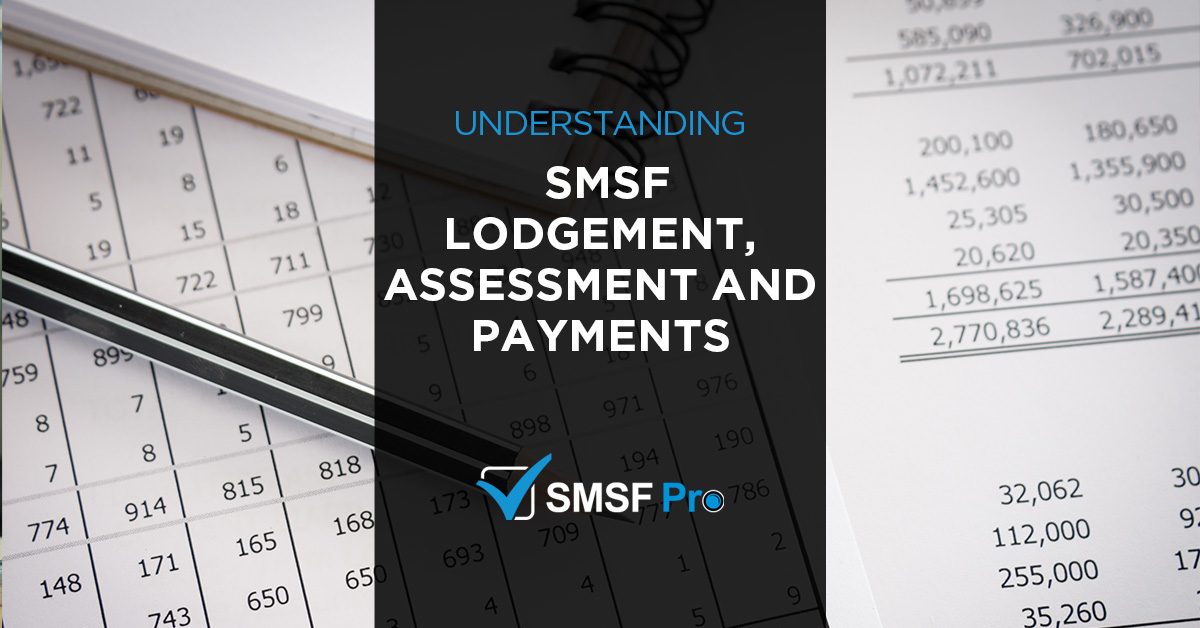Understanding SMSF Lodgment, Assessment and Payments
Self-managed super funds are a popular investment vehicle, but the rules governing audits, lodgement, payments, and assessments can be quite confusing.
It is important that you understand what your obligations are so that you can manage the funds in accordance with the Australian Taxation Office’s regulations and requirements.
The ATO requires people to[1]:
- Lodge annual returns, even if they do not have a tax liability that year
- Complete self-assessments on time and paying any taxes that are due
- Make payments to the ATO on or before the due date
There are a number of key dates that should be remembered when handling your SMSF responsibilities:
31 October: Lodgement date for people who are filing through e-tax, or who owed tax on 30th June
15 January: Large or medium-sized trusts who were taxable the previous year
28 February: Large or medium trusts that were not taxable the previous year or have just registered
31 March: Trusts/individuals with a tax liability of over $20,000 the previous year
1 May: All other trusts or individuals
You Are Responsible for Your Own Affairs
The ATO makes it clear that individuals and trustees are responsible for managing their own SMSF’s affairs and paying any taxes on time.
In some cases, however, it is possible to come to an arrangement to pay a tax debt in instalments.
If you are struggling to pay the tax debt associated with the SMSF then you should contact the ATO and provide details of the financial position of the SMSF, as well as its income and expenditure.
The ATO will want to know what steps you have taken to try to pay the debt, and they will also want to know how you are working to ensure that you will be able to pay the debts on time.
What Happens if You are Non-Compliant
The ATO takes failure to comply with the super laws seriously. There are a number of steps that will need to be followed, depending on the breach.
The measures followed depend on the nature of the breach. They start with education.
If an SMSF trustee has failed to comply with the law then they may be directed to undertake a course that will help them to understand their obligations, so that they are less likely to contravene the law again at a later date.
There is also sometimes the option of committing to an undertaking that will rectify the contravention.
The ATO does not have to accept this undertaking, but in many cases for smaller breaches that did not have criminal consequences they will.
For more serious contraventions, there is the option of an administrative penalty, civil or criminal charges, and the disqualification of trustees.
In severe cases, the assets of the SMSF may be frozen.
Ensuring Compliance with SMSF Requirements
If you are responsible for the management of an SMSF, then you should seriously consider undertaking some education to ensure that you are aware of your responsibilities.
The administrative burden associated with lodgement, assessment, and payment can be quite intimidating for someone who has not done it before.
It is also important that you work with a reputable auditor who can keep you on track and alert you to any compliance issues.
The ATO’s rules are strict but fair, and if you can show good faith in your management you are unlikely to run into any problems.
Seek advice early so that you can stay ahead of your tax bill and make all of your filings on time.
If you are worried that you are already behind, act now to get back on track. The longer you delay, the more severe penalties may be.
If you are looking to establish a Self Managed Super Fund, or need to have your Self Managed Super Fund audited, then look no further than SMSF Pro.
SMSF Pro has years of expertise in the Self Managed Super Fund arena and is able to conduct quick and independent SMSF audits for a flat fee.
Please call us today on 1300 023 374 or message us through our website https://smsf-auditor.com.au/contact/ for all your Self Managed Super Fund requirements.

